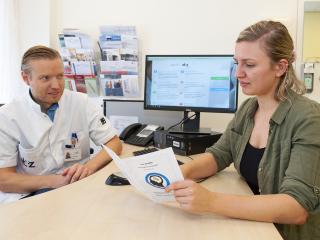The Strongest Link
The Strongest Link is a study into the economic self-reliance of families. It aims to break through generational poverty based on neuropsychological insights. As a partner, Tilburg University is responsible for evaluating the effects of the interventions on the economic self-reliance of families.
Tackling poverty is important because poverty poses a higher risk of developing health problems and of people's long-term well-being. By teaching families the right skills, people can break the vicious circle of generational poverty, and children are offered a more successful and healthier future.
Combining poverty with insights from cognitive neuropsychology
This research uses an approach that combines the subject of poverty with insights from cognitive neuropsychology. Consider the effects of stress on the brain and cognitive skills and the ability of the brain to develop. The project strives for long-term improvements to help combat generational poverty.
Strengthening socio-economic fitness
This new approach is aimed at strengthening the socio-economic fitness of families, in order to give them back control over their future and the future of their children. It consists of two parts:
- Mobility Mentoring®
In this approach, mentoring is based on equality and is provided by a professional who contributes to people's more goal-oriented actions; - EFFECT
This model consists of methodologies that have been scientifically proven to train and develop both executive skills and the brain networks associated with these skills.
The research will take place in municipality of Waalwijk and will start in September 2020.
Collaboration
The target groups of the study are families with financial problems in the municipality of Waalwijk, who would like to cooperate with a mentor. There will be close cooperation with social partners in the neighborhood, such as community teams, schools, and social institutions.
Results
The impact of the intervention is measured both quantitatively and qualitatively. The quantitative measurement concerns the measurement of (changes in) self-reliance (measured on the pillars of family stability, welfare, finances, education, and career), the experienced financial scarcity, the subjective and objective executive functioning, and the quality of life of the participants.

